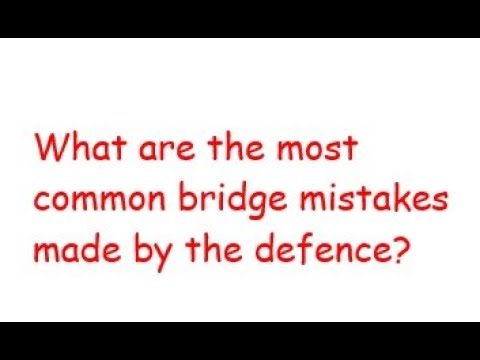In the high-stakes world of one-on-one defending, mistakes are inevitable. Whether it’s a mistimed tackle or a momentary lapse in concentration, even the best defenders find themselves in need of recovery. But it’s how they bounce back from those errors that sets them apart. In this article, we delve into the art of recovering from mistakes in one-on-one defending. From mental resilience to tactical adjustments, we explore the strategies and techniques that can turn a defensive blunder into a triumphant redemption. Join us as we uncover the secrets to bouncing back and regaining control on the pitch.
How should one answer to their boss in the event of making a mistake?
When faced with a mistake at work, it is essential to respond to your boss with a concise and sincere apology. A simple yet effective approach could be saying, “I apologize for my mistake and take full responsibility for it.” This straightforward acknowledgment not only demonstrates your integrity but also reassures your boss that you are committed to rectifying the situation and preventing future errors.
Additionally, it is crucial to show your boss that you are actively working towards resolving the mistake. You can further supplement your apology by stating, “I am already taking the necessary actions to correct the error and ensure it does not happen again.” By emphasizing your proactive approach and commitment to improvement, you exhibit professionalism and reliability, which can help restore your boss’s confidence in your abilities.
What should be done in the event that a team member commits an error?
When a team member makes a mistake, it is crucial to swiftly transition into problem-solving mode. Instead of dwelling on the error, take prompt action to rectify the situation. Engage in open discussions with the team to understand the root cause of the mistake and develop effective strategies to correct it. By focusing on finding solutions, you can ensure that the mistake is resolved efficiently.
After resolving the mistake, it is essential to coach and guide the team on preventing future occurrences. Encourage open communication and collaboration to identify preventive measures that can be implemented. This proactive approach helps the team learn from the mistake and avoid repeating it in the future. By discussing and implementing necessary actions, you can establish a culture of continuous improvement within the team.
Ultimately, addressing team member mistakes involves a two-step process: immediate problem-solving and long-term prevention. By swiftly addressing and fixing the mistake, team members can regain confidence and momentum. Subsequently, engaging in discussions and implementing preventive measures will ensure that the team learns from the mistake, grows stronger, and becomes more resilient in the face of challenges.
How can I put an end to my rumination over a mistake made at work?
Are you constantly replaying that one mistake you made at work over and over again in your mind? It’s time to break free from the cycle of rumination and move forward towards a more productive mindset. Firstly, acknowledge that mistakes happen to everyone, and it’s how we learn and grow. Instead of dwelling on the negative, focus on what you can do to make it right. Take actionable steps to rectify the situation, whether it’s through a sincere apology or finding a solution. By taking responsibility and actively working towards a resolution, you can regain your confidence and overcome the constant rumination.
Secondly, practice self-compassion. Remember that you are only human and are bound to make mistakes. Treat yourself with kindness and understanding, just as you would a friend. Beating yourself up over the error will only prolong the rumination process. Instead, accept that you are not perfect and give yourself permission to let go of the mistake. This self-compassion will help you develop a healthier and more positive mindset, allowing you to move forward and focus on your future successes.
Lastly, reframe your perspective and shift your focus to the present and the future. Constantly dwelling on the past serves no purpose other than hindering your progress. Instead, redirect your energy towards productive actions and goals. Look for opportunities to learn from the mistake and use it as a stepping stone for personal and professional growth. By embracing a forward-thinking mindset, you can break free from the rumination cycle and channel your energy towards achieving your goals and creating a brighter future.
Subtitles:
Unlock Your Creativity:
Tap into your inner artist and unlock your creativity with our innovative workshops. From painting to pottery, our experienced instructors will guide you through a hands-on experience that will leave you feeling inspired. Discover new techniques, explore different mediums, and unleash your artistic potential. Whether you’re a beginner or an experienced artist, our workshops offer something for everyone. Join us and let your imagination run wild as you create stunning masterpieces that you’ll be proud to display. Don’t wait any longer – awaken your creativity today!
Unleashing Your Defensive Potential: Expert Strategies for Bouncing Back Stronger
Unleashing Your Defensive Potential: Expert Strategies for Bouncing Back Stronger
In the face of adversity, the key to personal growth lies in unleashing your defensive potential. By adopting expert strategies, you can bounce back stronger than ever before. The first step is to embrace a growth mindset, where you view challenges as opportunities for learning and development. Rather than being overwhelmed by setbacks, see them as stepping stones towards success. This shift in perspective empowers you to navigate through obstacles with resilience and determination.
To truly unleash your defensive potential, it is crucial to cultivate self-awareness. Take the time to understand your strengths and weaknesses, as well as your emotional triggers. By recognizing your vulnerabilities, you can proactively address them and build a solid foundation for personal growth. Additionally, practicing mindfulness and self-reflection allows you to stay grounded and focused during challenging times. This level of self-awareness will enable you to respond to adversity with composure and devise effective strategies for overcoming obstacles.
Finally, surround yourself with a supportive network of individuals who believe in your potential. Building strong relationships with like-minded individuals who share your values and goals will provide you with the encouragement and guidance needed to bounce back stronger. Seek out mentors who have successfully navigated through adversity themselves and learn from their experiences. By surrounding yourself with a positive and empowering community, you will amplify your defensive potential and be equipped to face any challenges that come your way.
In conclusion, unleashing your defensive potential requires adopting a growth mindset, cultivating self-awareness, and building a supportive network. By embracing challenges as opportunities for growth, understanding your strengths and weaknesses, and surrounding yourself with a community of like-minded individuals, you can bounce back stronger than ever before. With these expert strategies, you will be prepared to overcome any obstacles that may come your way and unleash your true potential.
From Setbacks to Success: Proven Tactics for Perfecting One-on-One Defending
From Setbacks to Success: Proven Tactics for Perfecting One-on-One Defending
Mastering the art of one-on-one defending is a crucial skill for any athlete. With a combination of agility, anticipation, and technique, players can turn setbacks into stepping stones towards success on the field. By staying low on their feet and maintaining a strong defensive stance, defenders can effectively cut off angles and limit the attacker’s options. Furthermore, maintaining constant communication with their teammates allows defenders to anticipate and intercept passes, disrupting the opposition’s attacking flow. With dedication and practice, players can refine their one-on-one defending skills, transforming themselves into formidable forces on the field.
In the realm of one-on-one defending, mental fortitude is just as important as physical prowess. By studying the habits and tendencies of their opponents, defenders can anticipate their moves and react swiftly. The ability to stay calm under pressure and make split-second decisions is what sets exceptional defenders apart. Moreover, mastering the art of timing tackles and interceptions can effectively neutralize the attacker’s threat. With a combination of discipline, focus, and relentless effort, defenders can overcome setbacks and emerge as indomitable forces on the field, commanding respect from opponents and teammates alike.
In order to become a more effective defender, it is essential to embrace the process of recovering from mistakes. By learning from our errors and adopting a growth mindset, we can turn setbacks into opportunities for improvement. With a focus on maintaining composure, adjusting positioning, and utilizing effective communication, defenders can enhance their ability to make crucial recoveries and ultimately contribute to the success of their team.



